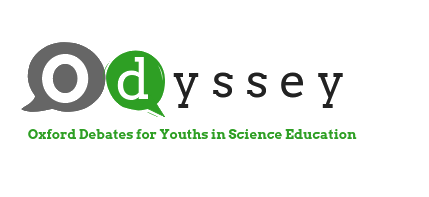We invite you to read our ODYSSEY Desk research dedicated to debates. It includes an analysis of debate initiatives within the four project countries (Poland, Greece, Estonia, Serbia). The aim of the report is to explore the conditions for the reliable and efficient use of debates in education, especially in science education. The report has several sections:
- General introduction dedicated to controversies and ‘rhetorical turn’ in the field of Science.
- Why debates? – this section is dedicated to presentation of the results of the survey conducted in 2018 among 139 STEM teachers in order to collect information on oral presentation and argumentation skills of pupils, as well as usefulness of educational materials developing rhetorical skills.
- What is a debate? – this section is dedicated to presenting general information about debates, including types of debate resolutions, debate’s participants, debate’s settings and necessary tools for debating.
- Short history of Debate – this part is presenting a brief history of debate overview, starting from its roots in ancient Greece to the modern Oxford Union Society.
- Debates and STEM education section indicates the importance and usefulness of using debates and importance of skills developed thanks to debating in STEM education.
- Debates in education – general overview – in this section general overview of national approaches to implementation of debating methods in school education in Estonia, Greece, Poland and Serbia and the most popular topics for debates are presented. Partners commented also on how debates fit into national curricula.
- Debates in education – national examples from partners’ countries – This section describes implementation of debates in school education in Estonia, Greece, Poland, Serbia, national organisations supporting usage debates in school practice and lists supporting materials and guidelines for teachers and educators. In case that debates are used during STEM classes, it is indicated.
- Main obstacles and barriers are presented, based on common conditions in partners’ countries. In the last section we present recommendations for ODYSSEY implementation, which address the most important challenges regarding debating in schools.
